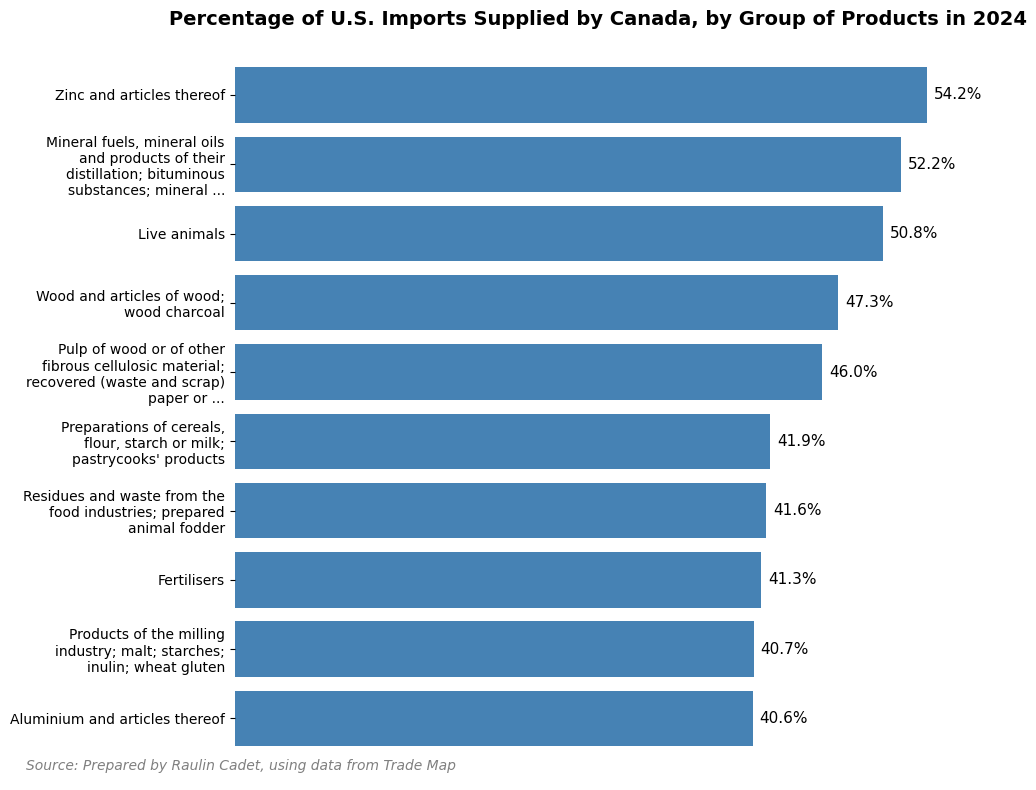U.S. Canada Trade Tariffs: The Risky Game
By Raulin Cadet | Published July 14, 2025 | Updated July 14, 2025 | Topics: Trade, USA, Canada, Trade tariffs, Trade game

"In business, as in life, you don’t get what you deserve, you get what you negotiate."
— Chester L. Karrass
The United States and Canada share one of the world’s most tightly trading relationships. But what might happen when tariffs and trade disruptions threaten to shake this relationship?
Definition: A trade game is a kind of competition between countries, where each decides how to manage trade, like setting tariffs. Each country tries to get the best outcome, but their decisions affect one another. Sometimes they cooperate, and both benefit. Sometimes one side gains more and wins. And in some cases, both can lose, especially in a trade war. Economists use game theory to study these kinds of strategic decisions and their possible outcomes.
Looking at the numbers, the U.S. relies heavily on Canada for a handful of key products, from aluminum to mineral fuels to wood products. The graphic of this blog post shows the top 10 products rely a lot on Canada. Any tariff placed on these imports can affect American industries, pushing prices higher and causing headaches for businesses and consumers alike. But it’s not a one-way street. Canada also depends on U.S. buyers. When the U.S. imposes tariffs, inducing a decrease in demand, Canada loses its biggest customer. Finding new markets isn’t so easy. It takes time, investment, and often, rethinking entire supply chains.
This isn’t just a trade dispute; it’s a strategic game where both sides risk losing in the short to medium term. Tariffs can inflate costs, disrupt supplies, and slow down economic momentum. The real question is: who stands to come out ahead in the long run? In many strategic situations, whoever makes the first move can set the tone and shape how the other side reacts, often gaining a key advantage. In the context of tariffs, the United States often holds the upper hand by moving first. With its larger market and Canada’s reliance on it, the U.S. is pushing Canada to rethink trade deals, giving Washington a greater chance of getting what it wants.
The outcome of this game depends on how Canada responds and how the United States adjusts to those responses. So, how can Canada manage the situation to aim for a win-win outcome, or at least a game where neither side gains or loses significantly?
